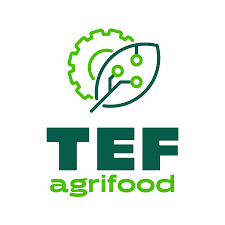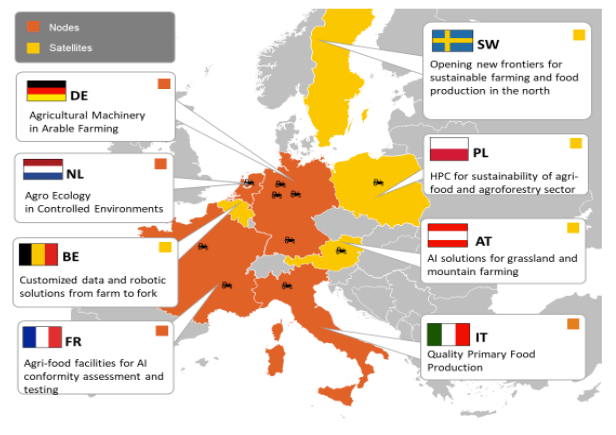As part of its Digital Europe program launched in 2021, the European Commission has selected the AgrifoodTEF project to develop a [Testing and Experimentation Facilities -TEF] Testing and Experimentation Facilities (TEF) network for companies to qualify their technological systems for agriculture and agri-food incorporating Artificial Intelligence bricks.

In more detail, AgrifoodTEF aims to:
- To test and experiment AI software and hardware solutions in large-scale, long-term, real-life environments.
- Offer evaluation services to facilitate market access for trusted intelligent technologies, notably by taking into account new regulatory requirements (certification, standards, codes of conduct, etc.) and guaranteeing easy access to these evaluation resources (link with digital innovation hubs, etc.).
- Optimize investments and avoid duplication of testing resources by capitalizing on past investments.
The AgrifoodTEF project was launched on 01/01/2023 for a period of 5 years.
To date, the consortium comprises four nodes and four satellites:
Nodes:
- Italy (Fondazione Bruno Kessler – FBK – national coordinator and general project coordinator)
- Germany (Stiftung fachhochschule osnabrück - HSOS - national coordinator)
- Netherlands (pilot Wageningen University and Research - WUR - national coordinator)
- France (LNE - national coordinator)
Satellites:
- Austria
- Sweden
- Belgium
- Poland

The French node includes the following partners: LNE, ACTA (and affiliated entities Arvalis, Idele, IFV + CIVC and the Pays de la Loire Chamber of Agriculture), INRIA, INRAE (PHASE Department and Research Unit -TSCF with AgroTechnoPôle).
During the first half of 2023, the partners will be building the service offering to qualify AI-based technologies, both in the agricultural field (plant and animal production) and the agri-food field (product processing).
The catalog of services on offer will enable manufacturers’ solutions to be tested at different scales, with simulation tests in laboratories and controlled environments (such as AgroTechnoPôle), as well as in real-life environments on pilot farms and agricultural plots.
The French node will also offer the ecosystem conformity assessment services (tests, audits, documentary analyses) to regulatory (including the new requirements of the AI Act) and voluntary benchmarks (for example, certification of the LNE process for AI, or the safety assessment of all-terrain vehicles and robots at INRAE’s AgroTechnoPole). It will participate in the establishment of standards and metrological reference systems that are sustainable, generic and shared to characterize technologies (evaluation protocols, metrics, etc.) in permanent consultation with public authorities and AI standardization committees (CEN-CENELEC JTC21, ISO/IEC JTC1/SC42, etc.).
The AgroTechnoPôle platform plays an active role in structuring this European testing network through its structuring and differentiating themes.
The priorities of its offer are:
- Safety testing of autonomous off-road agricultural robotic vehicles
- Virtual tests for agricultural robotics, based on the Digital Twins Workshop currently under development
- Testing new Perception-Decision-Action technologies for weed control, in conjunction with the research and test bench currently under construction.
For further information, please contact us.